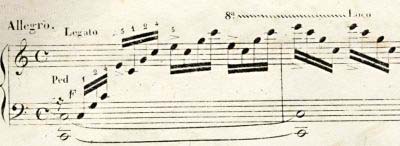My flight to Los Angeles took over six hours. Coming back to the east coast with a strong tail wind making the flight easier and faster, the flight lasted only four hours and twelve minutes.
Rudolf Serkin is sometimes credited with having said: “Playing the piano is easy, if everything goes well.” Raising the question, “What about when it doesn’t go well?” Then it’s harder, then it takes more fuel. Then, you need to be an “expert,” a  “master,” a “virtuoso.” It’s true of being a surgeon, or a president, or a pilot — you need to be at your best, most insightful, most steady, most adroit, when things are worst, when things are not going well. (That’s why in practicing music we might not stop when “mistakes” occur, but actually use “misfortune” as an opportunity to continue from a mistake, without stopping.)
“master,” a “virtuoso.” It’s true of being a surgeon, or a president, or a pilot — you need to be at your best, most insightful, most steady, most adroit, when things are worst, when things are not going well. (That’s why in practicing music we might not stop when “mistakes” occur, but actually use “misfortune” as an opportunity to continue from a mistake, without stopping.)
And momentary adversity can lead to expression or beauty in art.
In a pre-concert recital at Mostly Mozart at Lincoln Center, I was playing a piece I know well, Scarlatti’s Sonata in C Major, K. 513. (This was at a time when I didn’t embellish or elaborate much on the script). In the opening pastorale, I played a strongly dissonant melody note — a mistake. I was shocked, and angry, and instantly hot with fear. Without knowing consciously what I was doing, I then made up a little ornament and continued on with Scarlatti’s text. I didn’t like what I had done. But, listening to a recording of the performance much later, it seemed this moment was not only musically plausible, but one of the most vibrant and interesting parts of the playing.
As Edward Said has written, performance is an “extreme” occasion.

Elsewhere, Mr. Said has written about hearing Maurizio Pollini play Chopin’s First Etude, opus 10, number 1. Having entirely mastered or even nullified the technical challenges of the piece — there’s no more “resistance.” And perhaps Pollini renders the music as something other than itself…
